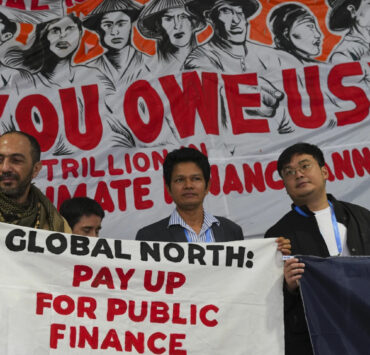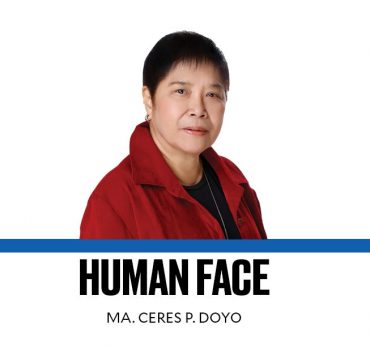First step toward accountability

Now that the Department of Justice (DOJ) has called former president Rodrigo Duterte’s bluff to file cases against him, an invested public eagerly looks forward to how he would squirm his way out of this latest predicament of his own making.
On Monday, DOJ Secretary Jesus Crispin Remulla said the government was eyeing the possibility of charging Duterte with violating Republic Act No. 9851 or the international humanitarian law (IHL).
Signed into law on Dec. 11, 2009, the IHL defines and penalizes what is considered the most severe crimes of concern to the international community—war crimes, genocide, and other crimes against humanity.
Article II, section 2 of the country’s Constitution also states that “[t]he Philippines … adopts the generally accepted principles of international law as part of the law of the land.”
Duterte had earlier challenged the government to do just that during his testimony at the House quad comm hearing on his war on drugs: “I have been killing people for a long time, but they have yet to file any case against me.”
Crimes against humanity
In apparent response, Remulla said: “Our task force is doing that now (investigating Duterte).” Earlier this month, the DOJ official created a task force to look into the extrajudicial killings (EJKs) committed during the previous administration.
Remulla also addressed the International Criminal Court’s (ICC) charges of crimes against humanity against Duterte, saying that if the DOJ’s charges overlap with those of the ICC, the government would have to choose what charges to pursue.
“We want the charges to be separate from each other … Even if we are not members of the ICC, the spirit of complementarity is still in place,” Remulla said, referring to the country’s withdrawal from the ICC in 2018 on Duterte’s orders after it opened a preliminary examination on the drug killings. The ICC has said its prosecutors maintain jurisdiction over alleged crimes committed before the withdrawal.
The spirit of complementary means that the ICC will only have secondary jurisdiction over national courts, and can only act if the national court cannot or refuses to prosecute Duterte.
Systematic killings
As it is, the DOJ’s investigation should mine as evidence Duterte’s sworn testimony before the quad comm, which included admissions about ordering the police to kill suspects in “self-defense” after goading them to fight back. He had killed “a lot of crooked police officers” during his term as Davao City mayor, Duterte said, adding that he was assuming “full legal, moral responsibility” for the killings.
Such systematic killings are covered by RA 9851, former senator Leila de Lima confirmed before the quad comm hearing: “These acts include willful killing, extermination, torture, and enforced disappearance, among others,” she said, noting that these crimes are nonbailable and could be punished by reclusion perpetua, or life imprisonment.
She added that the law holds not just the direct perpetrators responsible, but also those in leadership positions who order or induce the commission of such crimes. RA 9851 does not exempt government officials, including heads of state, from criminal responsibility, the former chair of the Commission on Human Rights said.
The law, too, is not subject to prescription, De Lima said. “The crimes penalized under this Act, their prosecution, and the execution of sentences imposed on their account, shall not be subject to any prescription. They can be hunted for life.”
Prospect of justice
The DOJ’s action is a solid first step to making Duterte fully accountable for the thousands of drug-related killings during his administration, of which only a handful have been officially investigated, and eight low-level cops have been convicted so far.
Government figures estimate that more than 6,000 people were killed in legitimate drug operations, but rights groups claim that as many as 30,000 were gunned down in shady police operations that often involved planted guns and drugs, as well as dubious claims of suspects fighting back.
Just as welcome is President Marcos’ statement last week, saying the government would not stand in the way if Duterte wants to surrender to the ICC. The government would be obliged as well to comply if his arrest was sought over his deadly war on drugs, Mr. Marcos added.
While Duterte’s allies have described the DOJ’s action as mere propaganda and “political theatrics,” it is a much-appreciated manifestation of the government’s determination to join the community of nations that subscribe and maintain a “rules-based order,” a distinction the country’s leaders should aspire to. It is also a concrete—if belated—expression of solidarity with all the victims of unjust killings and other crimes abetted by the climate of impunity under the previous administration.
Above all, such explicit expression of cooperation with the ICC should offer healing to the families of EJK victims, for whom the prospect of justice finally beckons.





















